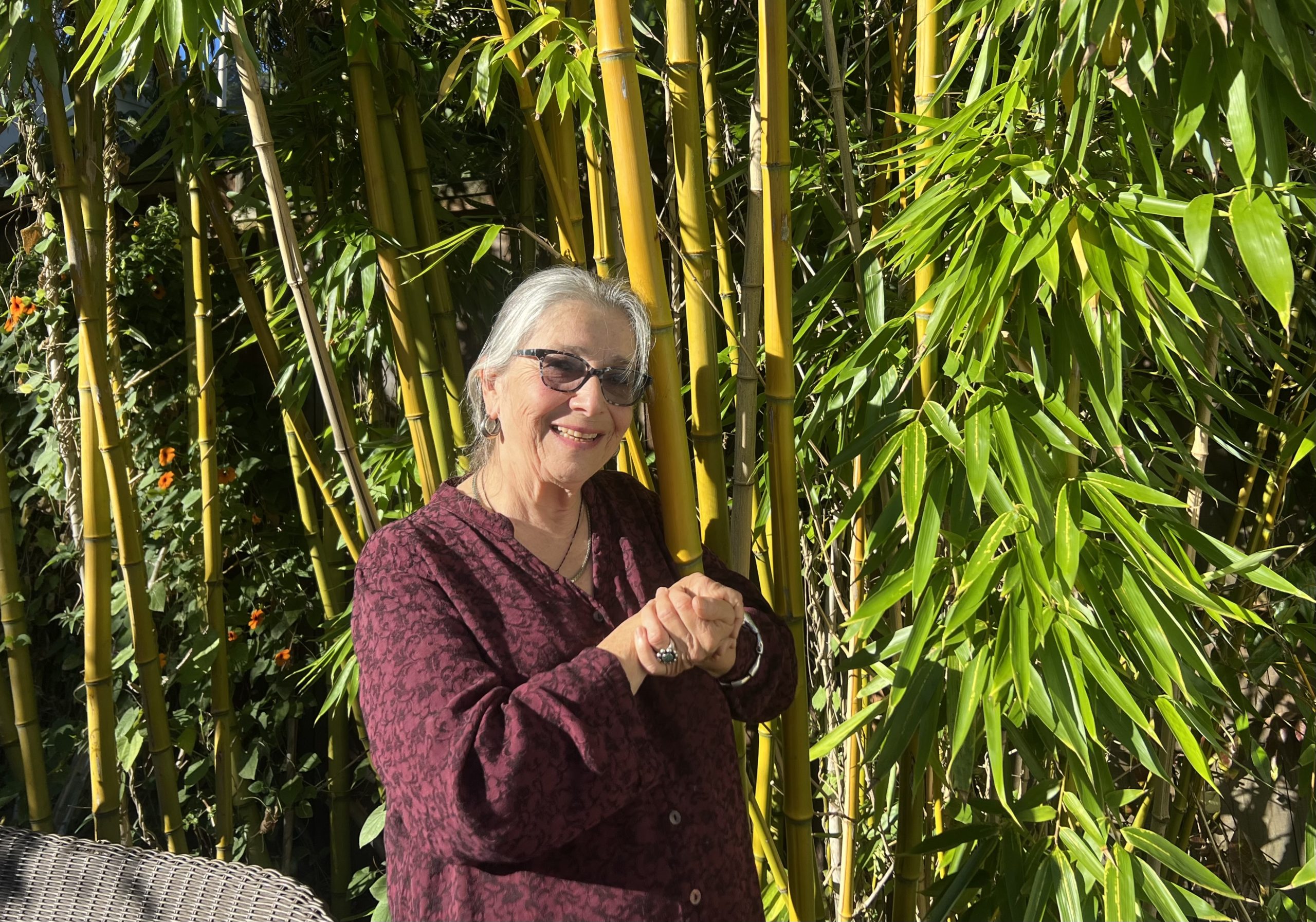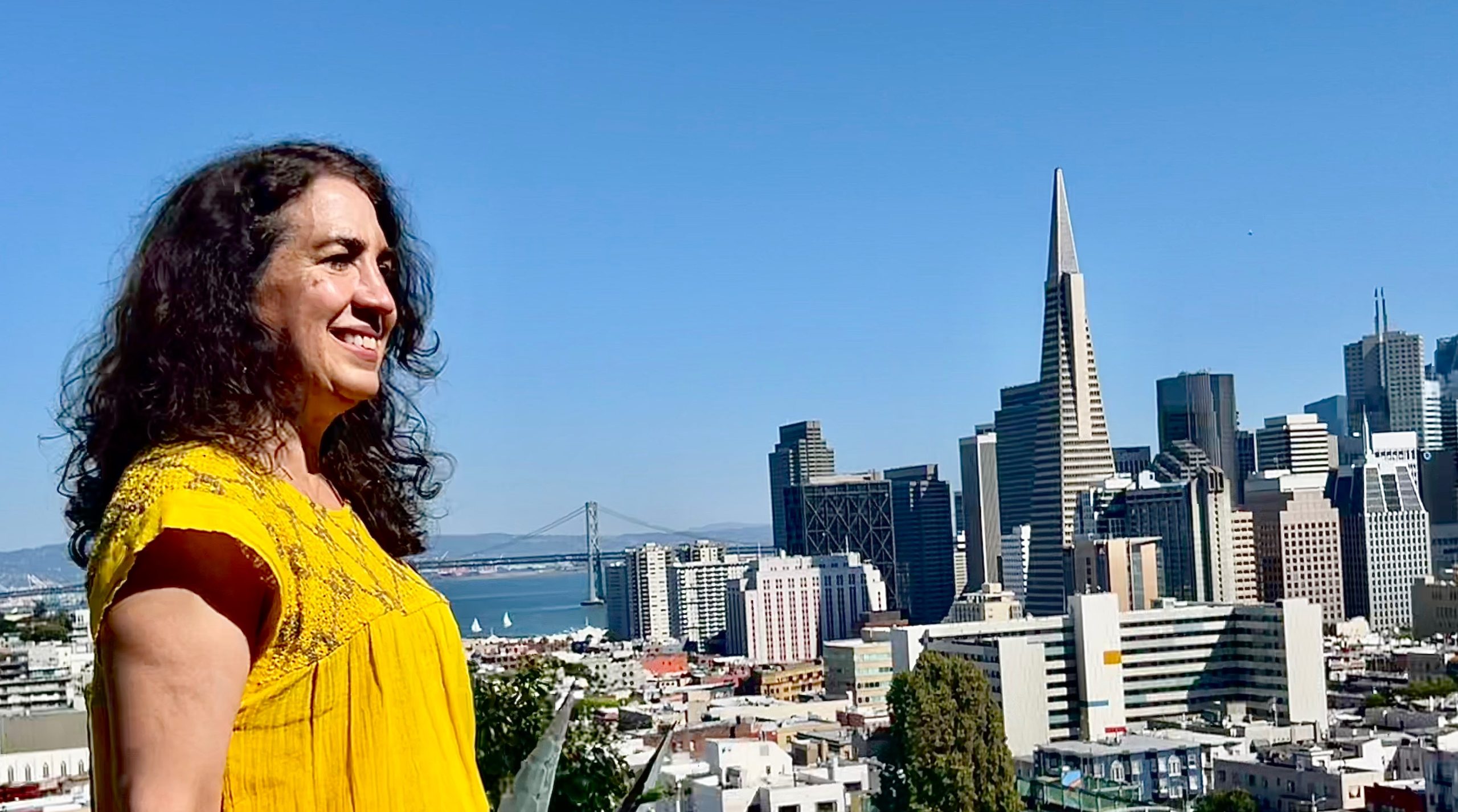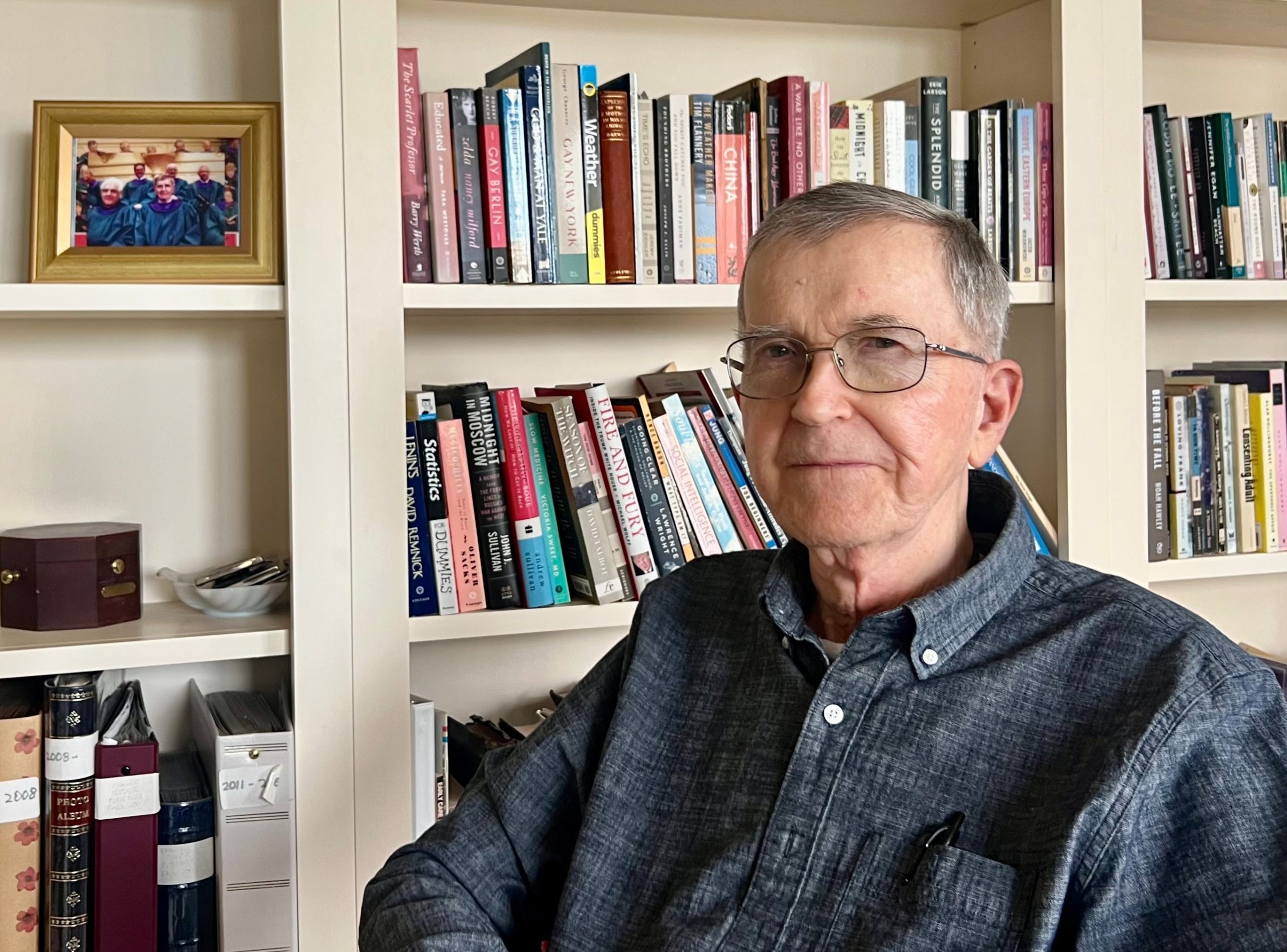Pop-Up pairs ‘perennials’ and millennials for conversation– and possible friendships
CREATING COMMUNITY – Manny’s cafe on the corner of 16th and Valencia streets was noisy and crowded. Scattered among the predominant millennials were a handful of perennials – a new term for seniors, as in enduring or existing for a long time – who nervously waited for the announced event to begin.
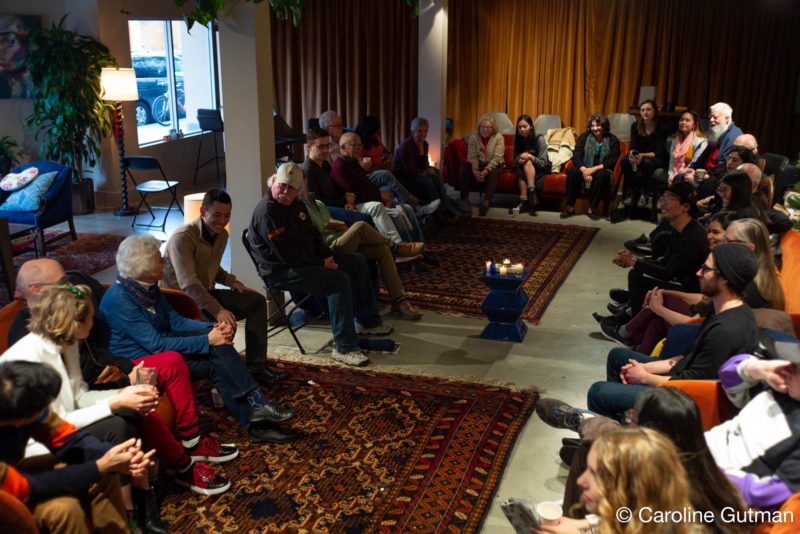
Most of us had never participated in a meetup, and we appeared ill at ease waiting for what was billed as an Intergenerational Friendship Pop-up. It was initiated by a Kasley Killam, a member of the San Francisco hub of the Global Shapers Community, a national membership organization of young people passionate about social issues.
One of its many projects is aimed at loneliness. She had seen surveys showing that up to 50 percent of Americans often feel lonely or lack companionship. Moderating a recent panel on loneliness, she learned loneliness can have health impacts as serious as those of diabetes or smoking.
Pairing 15 young adults (ages 21 to 35) with 15 adults 60 or older in conversation was her way of doing something about it. It was the first such meet-up organized by Killam, who works at Verily, formerly known as Google Life Sciences. From positive feedback at the event, Killam hopes to do more.
Loneliness hits all ages
There are more than 180,000 residents in San Francisco who are 60 or older, some of them socially isolated due to mobility restrictions. It’s likely many are lonely,” Killam said, whose article on promoting social health to combat loneliness appeared in Scientific American last year. “But with around 300,000 millennials in the city who are even lonelier, that’s a lot of possibilities for new friendships.”
At 2 p.m., we were ushered one-by-one into a quiet back room – Manny’s civic space – by interactive artists and facilitators Scott Shigeoka and Ivan Cash. We were invited to contribute herbs and spices to a communal tea, while Shigeoka quickly sketched our portraits, the first of several rituals that helped mark the event as special.
After brief introductions and a moment of mindfulness breathing, the facilitators randomly matched our portraits, dividing us into millennial-perennial pairs. Their first prompt, “share the story of your life in four minutes,” received some wry laughter, but in seconds the pairs were engaged in lively conversations. Three succeeding prompts encouraged even greater intimacy and conversation.
Dialogue with no family baggage
Afterwards, gathered in a large circle, one young man commented that he “rarely had conversations like this with anyone, let alone people of other generations.” A grandmother praised the experience of holding cross-generational conversations unfreighted by the baggage of family history.
One pair, Marcia Peterzell and Michael Maturo bonded when they learned they both grew up 10 minutes from one another in Rockland, N.Y. They had attended the same public schools – although generations removed. Maturo, a software engineer working in sales, was looking for a mentor when he signed up, he said, “not necessarily with obligations but a natural relationship of learning. Plus, I thought it would be fun to meet people of other perspectives.”
“We had a genuine heart connection,” said Peterzell, a community organizer and former youth worker who had signed up to deepen her understanding of a younger generation’s world views.
They also discovered a mutual interest in social activism. Contacted after the event, Peterzell said, “We’ve been texting and plan to get together and will probably get involved in some action together.”
Shared outlooks overcome age
Duff Axsom and Serena Bian “could not be more different,” she said, he a white gay man and she a young, Chinese-American woman. But it didn’t take long for commonalities to emerge.
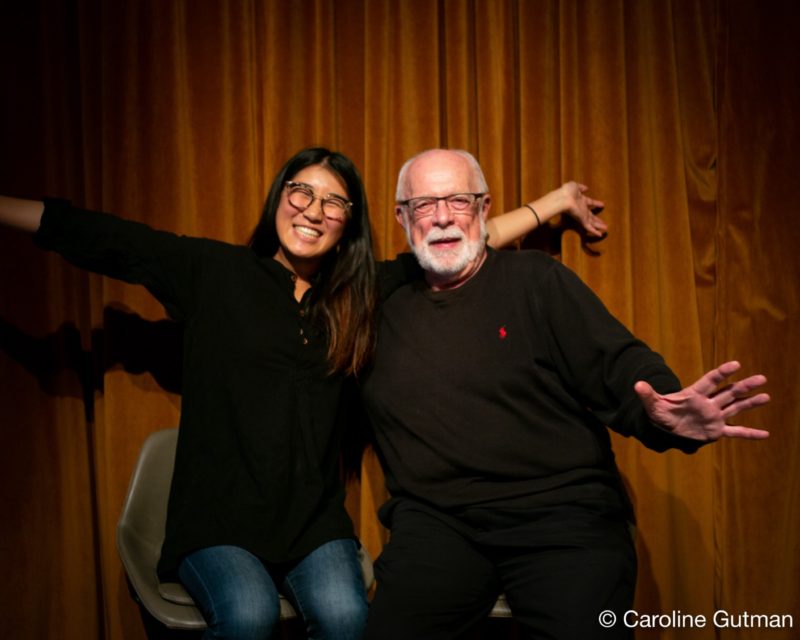
“From romance, to identity, to a shared empathetic outlook on life and people, etc., I was amazed by how thoughtful and accepting he was. I was amazed by his perspective on love throughout the aging process.“
Axsom knew Killam and thought the event sounded like fun. “People complain about the difficulty in making friends. I wanted to know how millennials make friends.” He discovered one way. He and Bian learned they both enjoy poetry and plan to attend a reading together.
“I was astonished by how much we had in common. We just started talking about what we want or don’t want in relationships and kept on talking,” said Axsom, a nonprofit consultant who is active at openhouse, a nonprofit addressing the needs of San Francisco’s older LGBTQ community.
“I think it worked because we both listened to each other and a commonality came out of that. The generational divide was not an issue for us. We talked as peers.”
Respect for the wisdom of years
The pop-up gave millennials a chance to learn from people who have been around longer and been through some of the experiences they have had or will have. For the perennials, it afforded a respect for their years not common in the public arena.
“So much can emerge in a conversation with someone who inhabits the same built environment as you, but who is in a very different life stage,” said Bian, recent college graduate who just moved to San Francisco to begin her first job, community manager at a venture fund. “It’s really amazing getting to meet people who are so comfortable in their own skin and have abundant stories to share.”
Killam thinks the event “struck a chord,” even though finding seniors to participate was more difficult. “I think they’re not used to responding to social media posts,” she said. “Millennial spots filled up in two days with just a few social media posts.”
Extending personal invitations through second- and third-degree connections turned out to be the most successful approach with the older generation.
What success would look like
Killam and her colleagues had envisioned what success would look like: people having meaningful conversations with someone they wouldn’t otherwise have gotten to know, coming away with a different perspective on age differences, looking at strangers as neighbors or potential friends, feeling inspired.
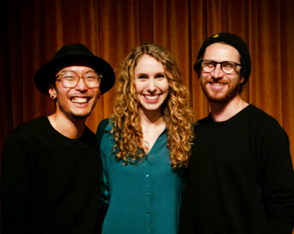
“And that’s exactly what happened,” she said. ““It was very gratifying to see it all come together after so much preparation.”
Said Bian: “Life is made so much richer, so much more colorful, when we decide to engage and converse and create a shared life with amazing individuals of all ages.”
Applicants to Global Shapers must have demonstrated a commitment to creating positive change in themselves, their local community, and the world. They commit to learn about problems and needs from the local people who face them and designing solutions with an eye towards scale.
According to Killam, the Global Shapers’ San Francisco Hub was the first to organize an intergenerational model. “It was my idea, but we will share the model with other hubs in case they are interested in replicating. The London hub is tackling loneliness as well, so we may collaborate with them on future projects.”


